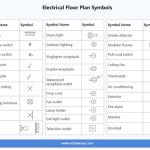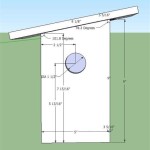What Is Elevation In Floor Plan?
An elevation in a floor plan is a 2D drawing, usually drawn to scale, that shows the vertical components of a building or structure. Elevations are used to show the height, width, and depth of a building, as well as the location of windows, doors, and other openings.
Elevations are typically drawn from a specific viewpoint, such as the front, back, side, or interior of a building. They can be used to show the overall appearance of a building, or to highlight specific features or details.
There are several different types of elevations, including:
- Exterior elevations show the outside of a building, including the roof, walls, and windows.
- Interior elevations show the inside of a building, including the walls, ceilings, and floors.
- Section elevations show a vertical cross-section of a building, revealing the interior construction.
- Detail elevations show a specific part of a building, such as a window or door, in more detail.
Elevations are an essential part of any floor plan, as they provide important information about the height, width, and depth of a building. They can also be used to show the location of windows, doors, and other openings, as well as the overall appearance of a building.
Essential Aspects of Elevations
When creating an elevation, there are several essential aspects to consider:
- Viewpoint: The viewpoint from which the elevation is drawn is important, as it will affect what is shown in the drawing.
- Scale: The scale of the elevation is important, as it will determine the size of the drawing.
- Accuracy: The elevation should be accurate, as it will be used to construct the building.
- Detail: The level of detail in the elevation will vary depending on the purpose of the drawing.
By considering these essential aspects, you can create elevations that are accurate, informative, and visually appealing.
Benefits of Elevations
There are several benefits to using elevations in floor plans, including:
- They provide a clear and concise representation of a building's height, width, and depth.
- They show the location of windows, doors, and other openings.
- They can be used to show the overall appearance of a building.
- They can be used to identify potential problems with a building's design.
- They can be used to create construction documents.
Elevations are an essential tool for architects, engineers, and other professionals involved in the design and construction of buildings.

How To Read House Plans Elevations

How To Draw Elevations

Architecture House Plan And Elevation Complete Drawing Cadbullb Bungalow Floor Plans Building Designs

Plan And Elevation Of The Test House A Floor Ground Scientific Diagram

What Is An Elevation Drawing A Little Design Help

A Floor Plan B Front Elevation C Side Scientific Diagram

Floor Plan And Elevations For The New House Wildfire Interiors

Elevations And Floor Plan Of Shed No 1 Work Garage Roberts Dolezal Farmstead 75 Miles Northeast The Intersection Cr27

Pin On My Saves

How To Read House Plans Floor Building In 10 Minutes Archid








